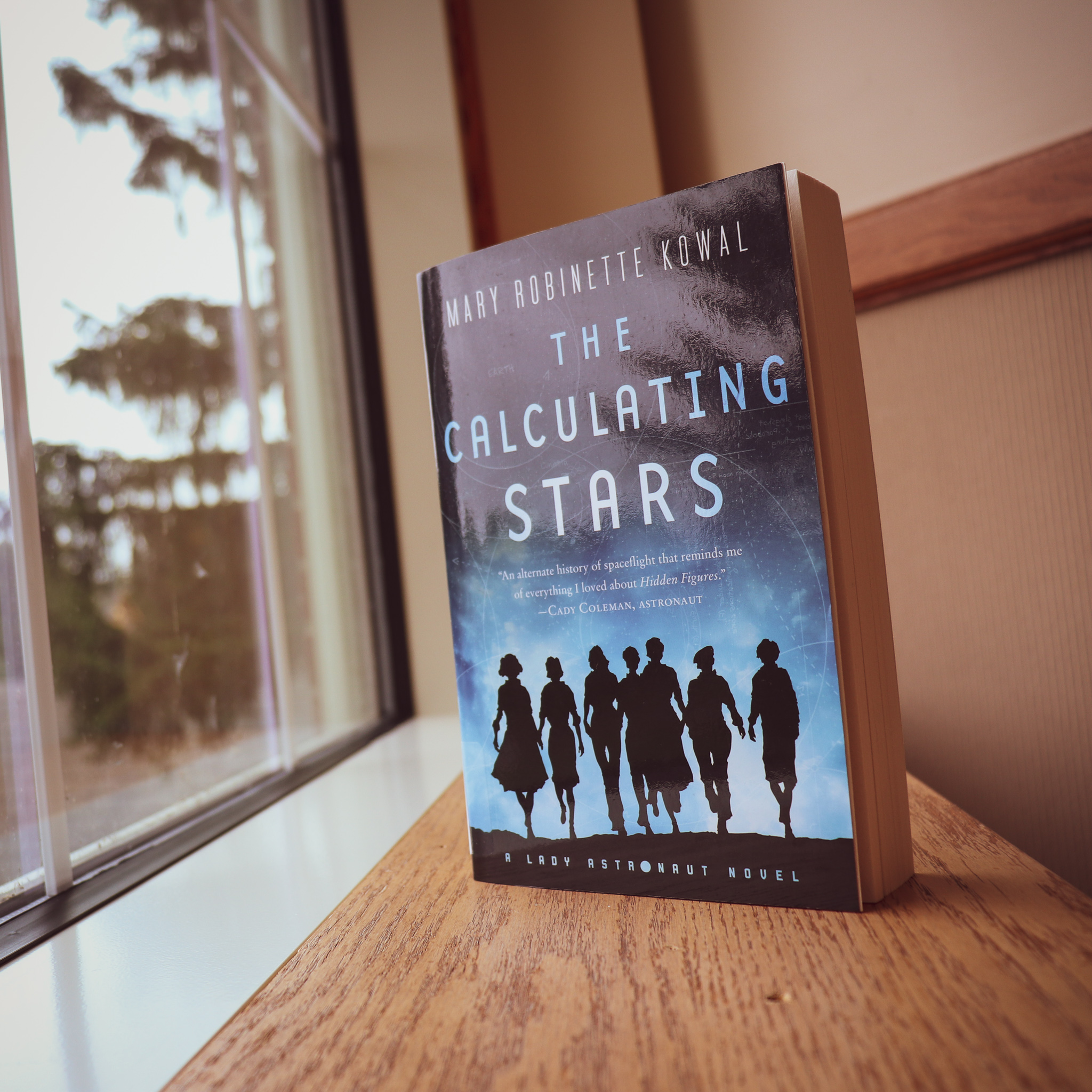when the space program kicks into gear after the meteorite disaster, the program’s leaders assume that only men can be astronauts. Elma York challenges this assumption, determined to become the first “lady astronaut”
Imagine if a meteorite were to destroy the place you live, killing nearly everyone you know and love, but you survive because you’re away on vacation. Things get worse when you realize that the space rock’s impact will eventually make the planet uninhabitable by humans. You realize this because you’re a really smart scientist. You’re also a talented pilot and your spouse holds an important technical position in the national government. It’s a familiar trope in fiction and film: great problems need great heroes.
The twist in The Calculating Stars, by Mary Robinette Kowal, is that protagonist Dr. Elma York is a Jewish woman living in a patriarchal society ridden with antisemitism. Further, Elma York suffers from anxiety that makes it an ordeal for her to speak in public. She can solve any equation or pilot a damaged plane and land it safely, but freezes when interviewed by reporters. Can such a talented, determined protagonist overcome her anxiety and societal prejudice in time to persuade politicians and the public that earth is doomed if they don’t act quickly?
The Calculating Stars belongs to the alternate history genre: it is set in the United States in the 1950s, but in this universe Thomas Dewey defeated Harry Truman in the 1952 presidential election. Kowal expertly balances the familiar and the new: World War II and the Holocaust happened and African-Americans face racism and discrimination. Sexism limits women’s ability to participate in public life; when the space program kicks into gear after the meteorite disaster, the program’s leaders assume that only men can be astronauts. Elma York challenges this assumption, determined to become the first “lady astronaut,” as the press dubs her.
It is rare that a novel wins all three major U.S. awards for science fiction and fantasy: the Hugo, Locus, and Nebula awards. The Calculating Stars is such a novel, capturing the imagination and attention of readers and critics alike. If an alternate history with space exploration and a compelling and memorable female scientist sounds like your cup of tea, check it out in Blough-Weis Library’s leisure section.
Discover more from Shelf-Promotion
Subscribe to get the latest posts sent to your email.

You must be logged in to post a comment.